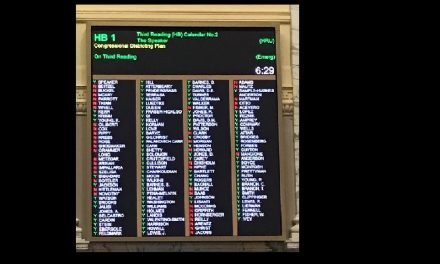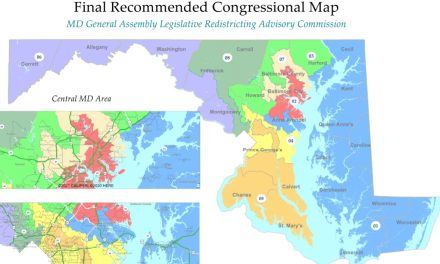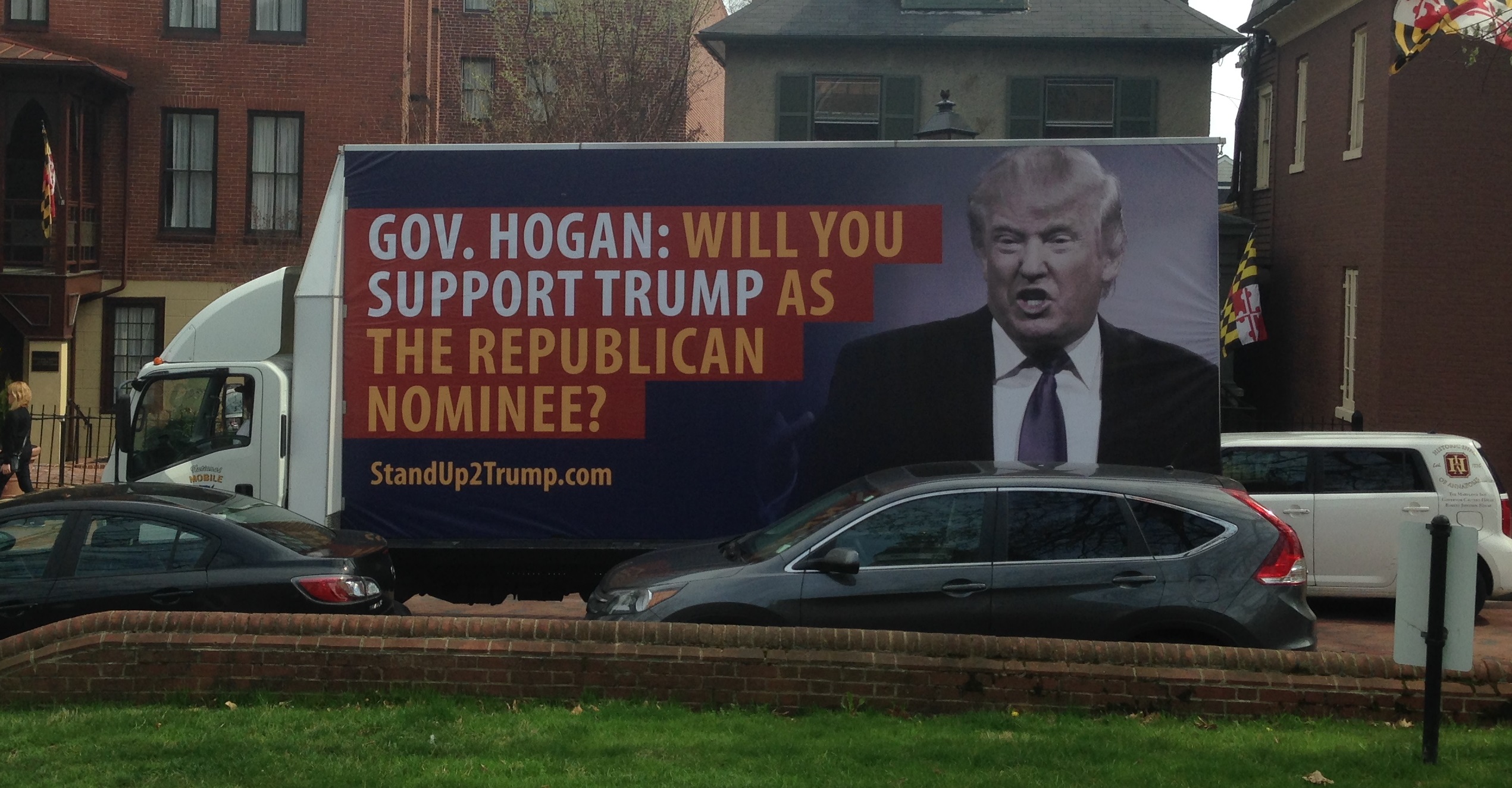By Delegate David Moon
For MarylandReporter.com
Maryland’s record-breaking early vote turnout is a welcome sign of engagement in an otherwise divisive election cycle. But as the last of the voters weigh in during today’s polarizing presidential election, I’m hopeful they’ll unite around a vote “for” Question 1.
Maryland’s only statewide ballot question this year came from a bill I sponsored with Senator Paul Pinsky, and it seeks to respect the will of the voters when we have vacancies in the elected offices of attorney general and comptroller.
A vote “against” our amendment to the Maryland constitution would preserve an undemocratic status quo. Under current law, the governor gets to appoint any replacement for these vacant statewide offices, and that unelected official can serve in office for a four-year term. Voters would never have a chance to weigh in on who represents them if Question 1 fails, and the governor could even appoint a candidate or party that lost the election by a wide margin.
In contrast, a vote “for” Question 1 respects the will of the voters at the last election, and it later gives them an opportunity to vote for their elected officials. Our constitutional amendment would require the governor to choose a temporary replacement from the same party as the outgoing official, and then we’d hold a special election to fill the remainder of the term during the next regularly scheduled election.
To be sure, Question 1 is a bit of a compromise when compared to filling vacancies with an immediate special election. That’s partly because during the legislative debate on this issue, some were concerned about the low turnout and high cost to administer special elections where only one office is on the ballot. In fact, I introduced a bill last year to require immediate special elections for United States Senate vacancies, but the bill died due to these concerns. Question 1 was proposed this year to overcome these policy obstacles, and I think it is a vastly more democratic solution than our current practices.
Even still, a few Republican Party officials have viewed these reforms with partisan suspicion, arguing that they diminish the powers of Gov. Larry Hogan. That is a bit of a short-sighted view of election reforms we are attempting to permanently embed in our state constitution. Question 1 would obviously limit the appointment powers of every Democratic Governor to come, and as we know through the last few decades of Maryland’s political history, we are likely to have more Democrats than Republicans winning gubernatorial races in the future.
Either way, this simple concept of respecting the will of the voters is not only common-sense in a democracy, it is already put into practice for other elected offices in Maryland. This is nothing new. When we have vacancies in the House of Delegates or State Senate, the governor is currently required to fill the vacant seat with a member of the same party. Indeed, it would have been troubling to have Govs. O’Malley or Hogan replacing elected legislators with members of their opposing party. The standard should be no different for statewide offices elected by the voters. I doubt the partisan skeptics of Question 1 are suggesting governors should be allowed to replace delegates and senators with members of the opposing party. Nobody would stand for it, as it would be patently undemocratic.
Nevertheless, some GOP officials oppose Question 1 precisely because it requires officials to be replaced by members of the same party. But that doesn’t mean they would prefer an even more democratic solution than the one I’ve proposed.
In fact, last year the executive director of the Maryland Republican Party testified against a bill to create immediate special elections for General Assembly vacancies. That bill was sponsored by Christian Miele, a Republican delegate, and it is notable that the same GOP official was just appointed by Gov. Hogan to fill a vacancy in the House of Delegates this summer.
Meanwhile, I live in Montgomery County, where we now have zero Republicans elected to office. Even with complete party control, the Democratic majority here has implemented special elections instead of appointments for County Council vacancies, and we are poised to adopt special elections for county executive through a ballot question this year. You heard that right — the Democrats in Montgomery County have diminished their own powers to give voters more control when filling vacancies.
So forgive me if I find the skepticism from some Republican leaders to ring hollow, but I can think of no sound policy justification for having an unelected appointee serve a full four-year term – especially if we’re already paying to conduct an election during that period.
The only partisan machinations I see at play here are those from GOP leaders who seek to ignore the will of the voters in order to preserve the very slim possibility that the governor at this brief moment in history will — maybe, just maybe — be able to replace Brian Frosh or Peter Franchot with a Republican. In short, a vote “against” Question 1 simply allows the governor to replace the wisdom of the voters with their own.
Though I call myself a progressive Democrat, I tend to go my own way on good government and voting rights issues. Earlier this year, I joined Republican Senate nominee Kathy Szeliga in introducing a bill to live-stream House and Senate floor debates, knowing full well that Szeliga would be challenging Chris Van Hollen (who I am supporting for U.S. Senate). I also introduced a bill to ban direct corporate donations to state candidates, as is currently the policy for federal campaigns. That bill was criticized by members of both parties. So let’s put aside the manufactured partisan shouting-match for a second and look at Question 1 on its policy merits. The proposal asks a very simple question: should the voters’ views or the Governor’s views dictate who represents us?
If you stand with the voters, vote “for” Question 1.
David Moon is a Montgomery County Democrat representing District 20 in the House of Delegates.






Why is it that liberals want us all to respect the will of the voters when they make the laws, but when someone else is in charge, they DO NOT respect the will of the voters???